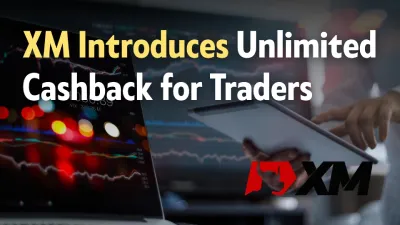简体中文
繁體中文
English
Pусский
日本語
ภาษาไทย
Tiếng Việt
Bahasa Indonesia
Español
हिन्दी
Filippiiniläinen
Français
Deutsch
Português
Türkçe
한국어
العربية
SEC Delays Decision on Fidelity's Ethereum ETF
Abstract:The SEC delays Fidelity's Ethereum ETF decision to March. Growing interest in crypto ETFs and Fidelity's strategy were analyzed.

The U.S. Securities and Exchange Commission (SEC) has opted to delay its verdict on Fidelity's proposal for a spot Ethereum exchange-traded fund (ETF). This announcement comes after a recent filing by the SEC, revealing that the new deadline for their decision is March 5.
Extension of Decision Deadline
The extension of the decision deadline allows the SEC additional time to carefully assess Fidelity's proposal and the wider implications of approving a spot Ethereum ETF. Fidelity initially submitted its proposal for the Fidelity Ethereum Fund back in November. In doing so, they referred to a previous legal ruling that questioned the SEC's reasoning behind rejecting spot crypto ETFs while permitting futures-based products.

This delay in the SEC's decision follows their recent authorization of 11 spot bitcoin ETFs. This move has stirred discussions within the financial industry about the possibility of a spot Ethereum ETF being the next milestone. It's worth noting that Fidelity is not alone in its pursuit of a spot in Ethereum ETF; it has joined forces with industry giant BlackRock in this endeavor, with both companies filing their applications late last year. These applications coincided with the launch of ether futures ETFs.
SEC's Stance on Ethereum
The SEC's decision to greenlight futures-based ETFs has raised speculation about their stance on Ethereum. It suggests that the regulator might be leaning towards treating Ethereum similarly to Bitcoin, implying that it may not be classified as a security.
Fidelity's Investor Protection Emphasis
Fidelity's filing emphasizes the importance of protecting investors, particularly in a landscape where U.S. investors are adopting higher-risk strategies to gain exposure to cryptocurrencies. In their filing, Fidelity highlights that “U.S. retail investors have lacked a U.S. regulated, U.S. exchange-traded vehicle to gain exposure to ETH.”

Referencing a recent legal decision involving Grayscale, Fidelity's filing points out inconsistencies in the SEC's stance, noting the agency's approval of futures-based crypto ETFs while rejecting spot-based ones. As a prominent asset management firm with $4.5 trillion under its management, Fidelity advocates for a regulated product that could mitigate the risks associated with unregulated crypto entities, as evidenced by issues with companies like FTX, Celsius Network, and BlockFi.
Potential Benefits of Ethereum ETF Approval
The filing goes on to state that “approval of a Spot ETH ETP would represent a major win for the protection of U.S. investors in the crypto asset space.” It suggests that if a Spot Ethereum ETP were available, a significant portion of the substantial investments tied up in these proceedings would remain securely in the brokerage accounts of U.S. investors.

Fidelity's move closely follows BlackRock's entry into the spot Ethereum ETF arena, indicating a growing interest among major asset managers in offering crypto-based investment products. The filing reveals Fidelity's intention to list the Fidelity Ethereum Fund on the Cboe BZX Exchange, providing investors with a regulated avenue for investing in Ether.
Increasing Interest and Competition
The quest for a spot Ethereum ETF in the United States is gathering momentum, with Fidelity becoming the seventh firm to seek SEC approval, joining the ranks of others like VanEck, 21Shares, ARK Invest, Hashdex, Grayscale, and Invesco Galaxy. This development showcases the increasing interest and competition in providing crypto-based investment opportunities to investors.

Disclaimer:
The views in this article only represent the author's personal views, and do not constitute investment advice on this platform. This platform does not guarantee the accuracy, completeness and timeliness of the information in the article, and will not be liable for any loss caused by the use of or reliance on the information in the article.
Read more

Different Forex Market Regulators But One Common Goal - Investor Safety
Thanks to the tight regulatory framework adopted by forex regulators across the globe, investors are thriving all over. The monetary growth is also attributable to fair trade practices followed by brokers, courtesy of the regulations imposed by the market regulators. Forex by country, whether it’s the developed economy or an emerging one, is flourishing with increased trade, renewed customer confidence, and a massive profit potential that the market holds.

Major U.S. Banks Plan Stablecoin Launch Amid Crypto Regulations
Major U.S. banks like Bank of America and Citibank explore stablecoins as new crypto-friendly bills set to reshape digital assets' role in finance.

XM Launches Unlimited Cashback Promotion for Traders Worldwide
XM launches unlimited trading cashback from July 15 to August 15. Get unlimited rebates with a Standard or Micro account and enjoy expanded trader club benefits.

5 Reasons to Know Why INFINOX Is a Standout Broker?
Every trader wants to invest their hard-earned money with a broker that offers them benefits and makes their forex journey smooth. Here is a broker you can consider to make your forex trading experience easier. Check out this article to learn how INFINOX stands out in the field of forex brokers
WikiFX Broker
Latest News
PrimeXBT Launches MT5 PRO Account for Active Traders
Renault shares plunge 16% after French carmaker lowers guidance, appoints new interim CEO
Darwinex Launches INDX: A Revolutionary Investment Strategy for Traders
Top Forex Trading Scams to Watch Out for in 2025
eToro Expands into Singapore with MAS CMS Licence
Real Risk Factors with Admiral Markets ! Explained
5 things to know before the stock market opens Wednesday
5 Reasons to Know Why INFINOX Is a Standout Broker?
Trump's big beautiful bill' caps student loans. Here's what it means for borrowers
Weekly mortgage demand plummets 10%, as rates and economic concerns rise
Currency Calculator



